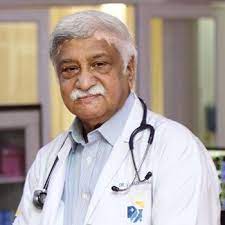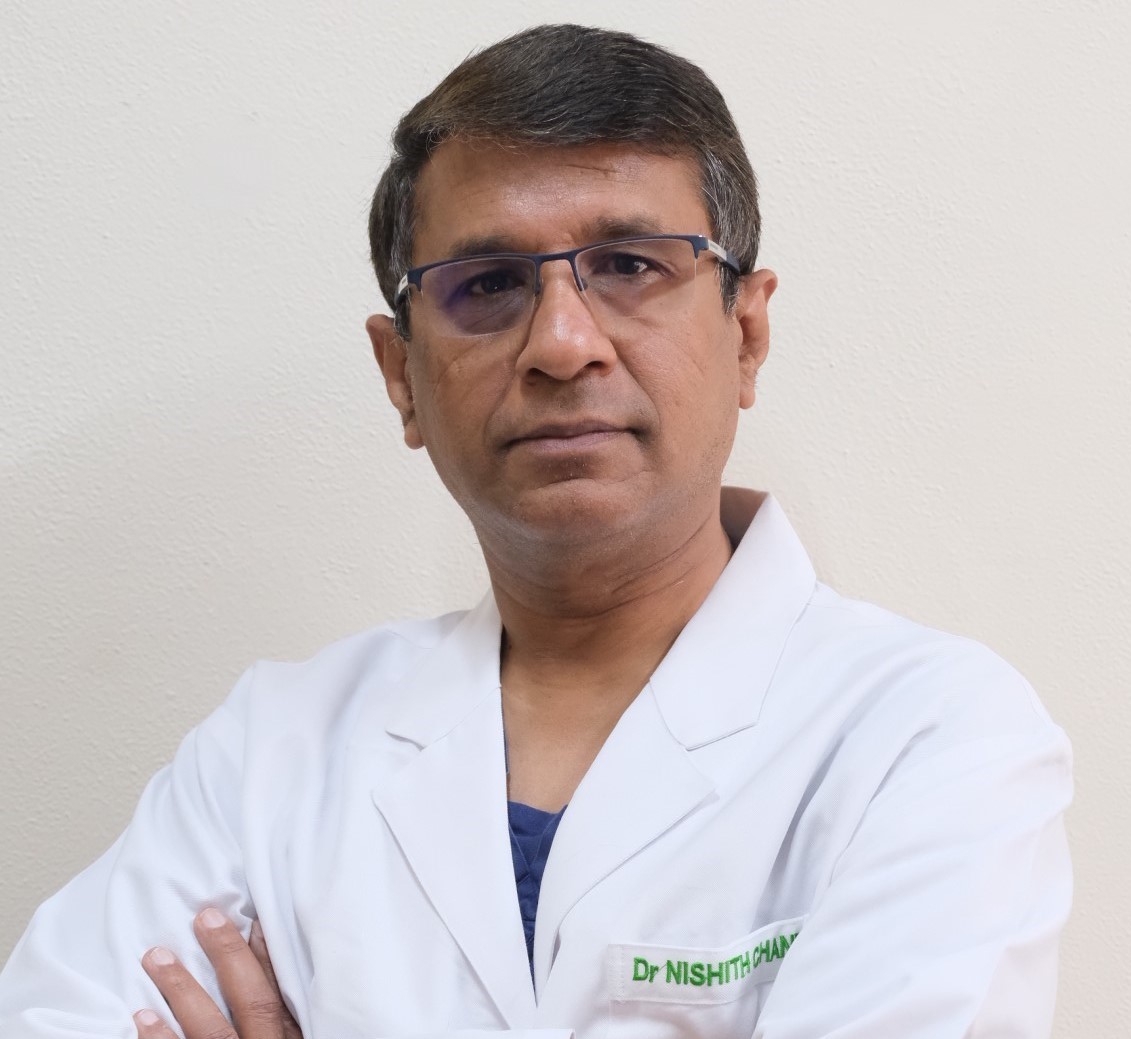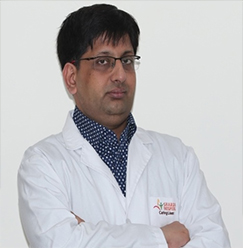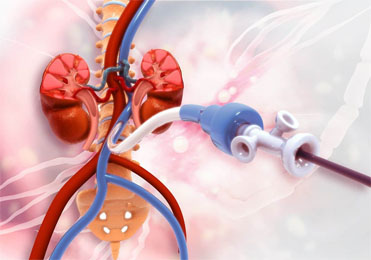Renal Angioplasty
India
-
Our Price USD 4500
-
Hospital Price USD 5000
-
You Save : USD 500
Booking Amount: USD 450. Pay Remaining 90% at the hospital.
Book NowAdditional Credit
Among the important extras we offer as part of the Additional Credit are the following:
-
Site Tourism For The Patient & Attendant
-
Airport Pick & Drop Service
-
Ambulance service at airport
-
Priority appointments with The Doctor
-
Cancel Easily Anytime with Full Refund
-
Room Upgradation
-
Free Online Doctor Consultation Valued at USD 20
-
Free hotel Stay for 5 to 7 days Accordingly
-
Welcome Kit at Arrival
-
Interpreter
-
Medical Visa Assistance
What is Included?
- Doctor consultation charges
- Lab tests and diagnostic charges
- Room charges inside hospital during the procedure
- Surgeon Fee
- Cost of implant
- Nursing charges
- Hospital surgery suite charges
- Anesthesia charges
- Routine medicines and routine consumables (bandages, dressings etc.)
- Food and Beverages inside hospital stay for patient and one attendant.
What is not Included?
- Extra Radiology Investigations
- Healthcare Professionals Charges of other consultations.
- Other Requested Services such as Laundry etc.
- Additional Pharmaceutical Products and Medicines After Discharge from Hospital.
- Management of Conditions Unrelated to Procedures or Pre-Existing.
- The cost of any additional implants will be in addition to the package cost.
Package Description
Renal Angioplasty
Renal artery stenting is performed during an angioplasty operation, which entails placing a tiny catheter into a damaged renal artery. The balloon on the end of an angioplasty catheter is used to inflate or enlarge the constricted region.
Renal artery angioplasty is a technique that widens the aperture of the kidney's blood vessels. The most common cause of arterial occlusion is narrowing of the renal artery (renal artery stenosis). Atherosclerosis or fibrous disease of the arteries is the most common cause of renal artery stenosis.
Disease Overview:
Renal artery stenosis
Renal artery stenosis is a narrowing of one or more of the arteries that provide blood to the kidneys (renal arteries). The narrowing of arteries limits the regular flow of oxygen-rich blood to your kidneys. To filter waste materials and eliminate extra fluids, your kidneys require enough blood flow. Reduced blood supply to the kidneys can cause damage to the tissue and raise blood pressure throughout the body.
Signs and Symptoms
Renal artery stenosis frequently has no symptoms or indicators until it is advanced. It's possible that the issue will be discovered by chance when checking for anything else. If you experience any of the following symptoms, your doctor may notice a problem:
- High blood pressure that appears out of nowhere or develops without warning
- High blood pressure that develops before the age of 30 or after the age of 50 is referred to as pre-hypertension.
- Additional signs and symptoms of renal artery stenosis include:
- High blood pressure that is difficult to manage
- A whooshing sound heard by your doctor with a stethoscope placed over your kidneys as blood rushes through a constricted artery (bruit).
- Protein levels in the urine that are abnormally high or other symptoms of impaired kidney function
- Kidney function deteriorates as a result of high blood pressure therapy
- Swelling of the body's tissues due to fluid excess
- Heart failure that is resistant to treatment
Disease Causes
Renal artery stenosis is caused by two primary factors:
Inflammation of the kidney (renal) arteries. Plaque (fats, cholesterol, and other chemicals) can build up in and on the walls of your renal arteries (atherosclerosis). These deposits can solidify, reducing blood flow, causing kidney scarring, and eventually narrowing the artery as they become bigger. The most prevalent cause of renal artery stenosis is atherosclerosis, which can affect any part of the body.
Fibromuscular dysplasia is a kind of fibromuscular dysplasia. The muscle in the arterial wall develops improperly in fibromuscular dysplasia, which usually begins in childhood. The renal artery can contain thin parts that alternate with broader sections, giving photographs of the artery a bead-like appearance.
The renal artery can constrict to the point that the kidneys don't get enough blood, resulting in high blood pressure at a young age. One or both kidneys may be affected. Experts aren't sure what causes fibromuscular dysplasia, although it's more frequent in women and might even be present from birth (congenital).
Kidney artery narrowing and fibromuscular dysplasia might create issues in other arteries in your body as well as your kidney arteries.
Renal artery stenosis can also be caused by other illnesses such as blood vessel inflammation or a tumour that forms in your belly and pushes on your kidneys' arteries.
Diagnosis
Your doctor may start with the following tests to diagnose renal artery stenosis:
A physical exam in which your doctor listens over the kidney regions using a stethoscope for noises that might indicate a constricted artery to your kidney.
A look back at your medical history
Kidney function is assessed using blood and urine testing.
Tests of blood and urine to determine the amounts of hormones that control blood pressure.
The following imaging studies are routinely used to identify renal artery stenosis:
Ultrasound with Doppler. Your doctor can inspect the arteries and kidneys and examine their function using high-frequency sound waves. This technique also aids your doctor in locating and assessing blood artery obstructions.
CT scan is a type of x-ray. An X-ray equipment connected to a computer provides a detailed picture showing cross-sectional views of the renal arteries during a CT scan. A dye injection may be given to indicate blood flow.
Magnetic resonance angiography (MRI angiography) is a type of (MRA). MRA creates comprehensive 3D pictures of the renal arteries and kidneys using radio waves and high magnetic fields. During imaging, a dye is injected into the arteries to define blood vessels.
Renal arteriography is a procedure that examines the blood vessels in the kidneys. This sort of X-ray aids your doctor in locating a blockage in the renal arteries and, in certain cases, opening the restricted section using a balloon and/or stent.
Disease Treatment
Renal artery stenosis can be treated with a combination of lifestyle modifications, medication, and a procedure to restore blood flow to the kidneys. A mix of therapies is sometimes the best option. You may not require any therapy at all, depending on your general health and symptoms.
Changes in your way of life
A healthy lifestyle ? reducing sodium, eating nutritious foods, and getting regular physical activity ? can help lower your blood pressure if it is moderately or severely raised.
Medication
High blood pressure, especially when caused primarily by renal artery stenosis, is frequently managed satisfactorily with medicines. It may take some time and patience to find the proper drug or combination of medications.
Some of the drugs often used to treat high blood pressure caused by renal artery stenosis are listed below.
The following procedures may be used to treat renal artery stenosis:
Angioplasty and stenting of the kidneys. Doctors expand the restricted renal artery and put a device (stent) into your blood vessel that keeps the vessel walls open and allows for greater blood flow in this surgery.
Renal artery bypass surgery is a procedure that involves bypassing the arteries in the kidneys During a bypass operation, surgeons graft a new blood vessel onto the renal artery to provide a fresh blood supply to your kidneys. Connecting the renal artery to a vascular from somewhere else, such as the liver or spleen, is sometimes necessary. When angioplasty fails or other surgical procedures are required, these surgeries are most commonly performed.
Information related to Treatment
Package Details
Days in Hospital
4 Days
Days in Hotel
*
7 Days
Room Type
Private

Treating Doctor
Dr. Col V Hariharan
Cardiologist- Electrocardiography, Pacemaker Implantation, Coronary Angiography, Heart valve replacement, Cardiac Ablation, Implantation of ICD, Electrophysiology Studies (EPS), ECG analysis
Indraprastha Apollo Hospitals, New Delhi New Delhi, India
38 Years of Experience

Treating Doctor
Dr. Nishith Chandra
Interventional Cardiologist- Pacemaker Implantation, Coronary Angiogram, Cardiac Catheterisation, Carotid Angioplasty And Stenting, Implantable Cardioverter-Defibrillators (ICDS), Peripheral Angioplasty
Fortis Escorts Heart Institute New Delhi, India
29 Years of Experience

Treating Doctor
Dr. Praveer Aggarwal
Cardiologist- Coronary Artery Bypass Grafting, Coronary Angiogram, Peripheral Angiography, Coronary Angioplasty / Bypass Surgery, Cardiac Ablation, Cardiac Catheterisation
Fortis Escorts Heart Institute New Delhi, India
31 Years of Experience

Treating Doctor
Dr. Aparna jaiswal
Cardiologist- Pacemaker Implantation, Three Dimensional Mapping, ICDs, CRT, CRT D, Electrophysiology Studies (EPS), Complex Arrhythmia
Fortis Escorts Heart Institute New Delhi, India
26 Years of Experience

Treating Doctor
Dr. Mahesh Chandra Garg
Cardiologist- Coronary Angiography, Cardiac Electrophysiology, Coronary Angioplasty, Radiofrequency Ablation for Arrhythmias
Indraprastha Apollo Hospitals, New Delhi New Delhi, India
50 Years of Experience

Treating Doctor
Dr. Umesh Kohli
Interventional Cardiologist- Echocardiography, Pacemaker Implantation, Coronary Angiography, Coronary Angiogram, Cardiac Ablation, Cardiac Catheterisation, ASD VSD repair, Cardioversion, Implantable Cardioverter-Defibrillators (ICDS), Peripheral Angioplasty, Non Invasive Cardiology, Chest Pain Treatment, Bypass Surgery, CT angiogram, Cardiology, Balloon Mitral Valbuloplasty
Accord Super specialty Hospital Faridabad, India
24 Years of Experience

Treating Doctor
Dr. S. K. Gupta
Cardiologist- Valvular surgery, Pacemaker Implantation, Angiography, Angioplasty, Cardiac Catheterisation, Congenital Heart Disorder CHD, Pacemaker Implantation, Valvuloplasty, EPS, Pacemaker Implantation, Cardiac Catheterisation, Pacemaker Implantation, Angiography, ASD and PDA Closure, Angioplasty, Pacemaker Implantation, Cardiac Catheterisation
Indraprastha Apollo Hospitals, New Delhi New Delhi, India
40 Years of Experience

Treating Doctor
Dr. Pankaj Bansal
Cardiologist- Pacemaker Implantation, Angiography, Angioplasty, Coronary Artery Disease, Cardiac Arrhythmias, Bradycardia, Blocked Arteries, Tachycardia, Angina, Atherosclerosis, Electrophysiology Studies (EPS), RFA
Sharda Hospital Noida, India
18 Years of Experience

Treating Doctor
Dr. Bhaba Nanda Das
Cardiac Surgeon- CABG on beating heart, Mitral valve replacement, Aortic Aneurysm Surgery, Double Valve Replacement, Aortic Valve Replacement & Repairs
Indraprastha Apollo Hospitals, New Delhi New Delhi, India
40 Years of Experience

Treating Doctor
Dr Nikhil Parchure
Cardiologist- Arrhythmia surgery, Transoesophageal Echo cardiography, Stress test, Pacemaker permanent
Apollo Hospitals - Navi Mumbai Navi Mumbai, India
31 Years of Experience


